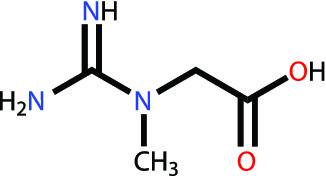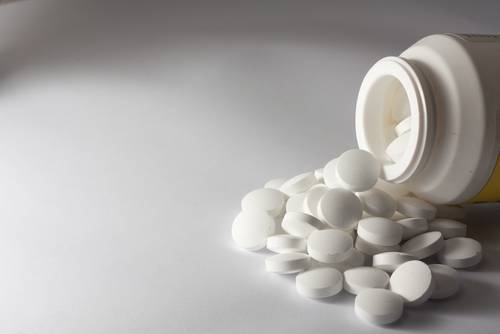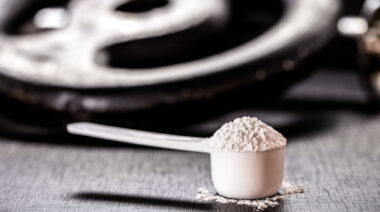There is no doubt that creatine is one of the favorite tools for building more muscle and increasing strength. Many college level and professional athletes utilize creatine for improving the performance of their bodies, but few recognize the cognitive benefits of this naturally occurring agent for the mind.
There is no doubt that creatine is one of the favorite tools for building more muscle and increasing strength. Many college level and professional athletes utilize creatine for improving the performance of their bodies, but few recognize the cognitive benefits of this naturally occurring agent for the mind.
Creatine is naturally found in vertebrates, but especially in carnivorous ones. Humans have some creatine, but vegetarians seriously lack this organic compound. Vegetarians who supplement with creatine will experience the most cognitive improvements, but the general population has much to gain from this nootropic as well.
In the same way that creatine improves the level of energy for your muscles to perform work, it can enhance ATP synthesis for the mind as well. This feature helps class creatine as a nootropic compound in the same category as things like piracetam or Asian ginseng.
Memory Advantages of Creatine
There are multiple types of memory, but creatine is particularly useful for short-term (working) memory. Studies using fMRI of the brainshowed dramatic increases in memory span for those groups who were given creatine compared to a placebo. The trial was one of many that helped researchers discover the mode of action for improving working memory. The researchers learned that creatine improves ATP re-synthesis, which is similar to its effect in the body. This increases the brain’s ability to remember in the short term.
For vegetarians, the cognitive advantages for working memory are even greater. Using a variety of tests (such as a backward digit span or Raven’s Advanced Progressive Matrices), scientists found that vegetarians and vegans could see a marked improvement with creatine that surpassed that of omnivores.
Reduced Fatigue and Enhanced Mood
Fatigue of the mind leads to poor decision making, but creatine enhances oxygenation utilization by the brain. Sleep-deprived individuals who utilize creatine are also able to mitigate the immediate harmful effects of their bad sleep habits. While creatine cannot prevent hormonal and other damage done to the body by sleep deprivation, it does provide enough extra ATP and improved oxygenation to reduce general fatigue.
There is also evidence that creatine improves mood as well. People with unipolar depression and other mood disorders have found creatine monohydrate to drastically reduce symptoms. There are few studies on mood enhancement and creatine, but the preliminary research shows it is effective even with treatment-resistant individuals.
Do Elderly Benefit from Creatine?
 There are a wide variety of people who benefit from the use of creatine, from young adults all the way to elderly individuals. Elderly improvements in spatial recall and long-term memory show that age-related neurological decline can be altered by steady supplementation of creatine. In the elderly, creatine can improve the survival of GABA-ergic neurons that play a role in preventing Alzheimer’s, Parkinson’s, and other age related diseases.
There are a wide variety of people who benefit from the use of creatine, from young adults all the way to elderly individuals. Elderly improvements in spatial recall and long-term memory show that age-related neurological decline can be altered by steady supplementation of creatine. In the elderly, creatine can improve the survival of GABA-ergic neurons that play a role in preventing Alzheimer’s, Parkinson’s, and other age related diseases.
Dosing Creatine for Yourself
Nootropics are becoming an ever popular and accepted method of improving health and longevity of the mind. Whether you have an interest in improving your cognitive abilities for your daily responsibilities or for neuro-protection, here are a few action steps to get you on the right track. Note: if you have a history of kidney problems, do not supplement with creatine as the additional strain may be too much for your organs to handle.
1. Get a Blood Test
Before you start using creatine, take a standard blood test and you can get an idea of your current levels. The “creatinine” levels on your blood test will show the approximate creatine that you have. Creatinine is a byproduct of creatine after it has been synthesized. Getting this information can help you see whether you are genetically low, whether your diet is causing low creatine, and whether you might see improvements through supplementation.
2. Change Your Diet
The first step to improve the level of creatine does not have to be through the use of the supplement. Taking the standard recommended dosage is the equivalent of 2.5lbs. of meat, which may be too much. Add more meat to your diet if it is possible and then check your blood work again. If you don’t see significant improvements, start supplementation. Note that this is particularly important for people who are vegetarians or those who do not eat much meat.
3. Track Cognition
Tracking your cognitive abilities should be a major priority. There are plenty of tools to track cognition, which will give you an idea of whether the creatine is working. Particularly, look for tests that track memory (either working or spatial).
4. Supplement with Creatine
 If the dietary changes do not work, using a creatine monohydrate supplement might be the best way to go. To do this according to recommended dosages, you have a couple of options. First, you can take 5 grams of creatine per day, but it will take two to six weeks to start working. Alternatively, you can take 20 grams for the first week, which is considered a loading phase. After that, you can go back down to 5 grams per day.
If the dietary changes do not work, using a creatine monohydrate supplement might be the best way to go. To do this according to recommended dosages, you have a couple of options. First, you can take 5 grams of creatine per day, but it will take two to six weeks to start working. Alternatively, you can take 20 grams for the first week, which is considered a loading phase. After that, you can go back down to 5 grams per day.
Improved Mind and Body
There may be many stereotypes about using creatine for building muscle and strength, but there are also scientific cognitive advantages. If you cannot get an adequate amount of creatine in your diet or you are just interested in trying a safe nootropic compound, the aforementioned steps can put you on the right path to enhanced memory, mood, and reduced fatigue.
References:
1. Hammett, Stephen T., “Dietary supplementation of creatine monohydrate reduces the human fMRI BOLD signal.” Neuroscience Letters (2010): 479(3): 201 – 5.
2. McMorris T., Harris R.C., “Effect of creatine supplementation and sleep deprivation, with mild exercise, on cognitive and psychomotor performance, mood state, and plasma concentrations of catecholamines and cortisol.” Psychopharmacology (Berl) (2006): 93 – 103.
3. McMorris T., Mielcarz G., “Creatine supplementation and cognitive performance in elderly individuals.” Neuropsychol Dev Cogn B Aging Neuropsychol Cogn (2007): 517 – 28.
4. Balaster, E. “Tutorial to Track Mental Improvements with Nootropics.” Pure Nootropics blog (2013). Accessed January 13, 2014.
Photos courtesy of Shutterstock.






